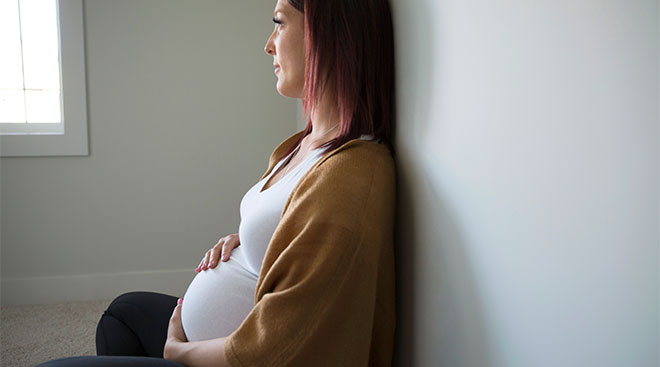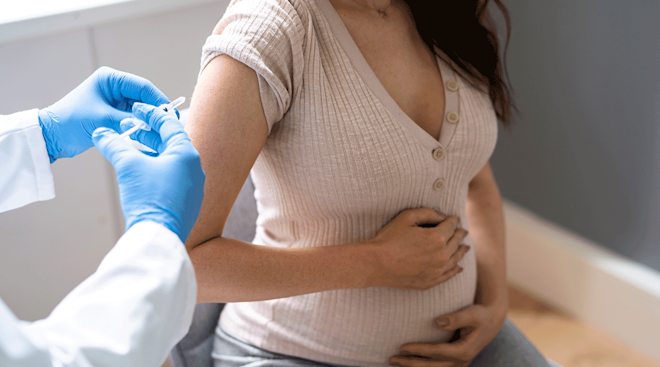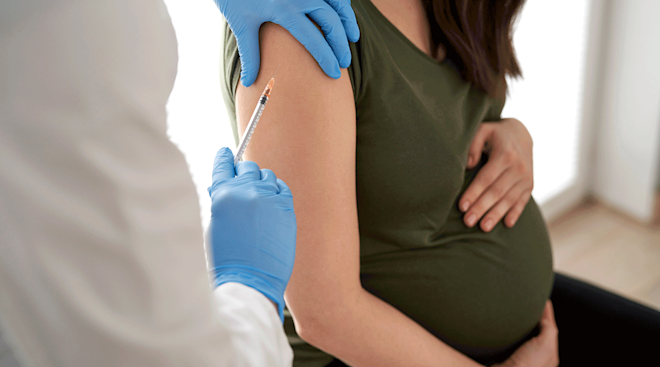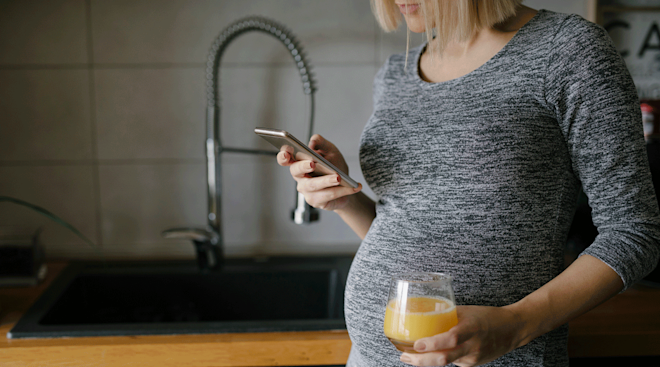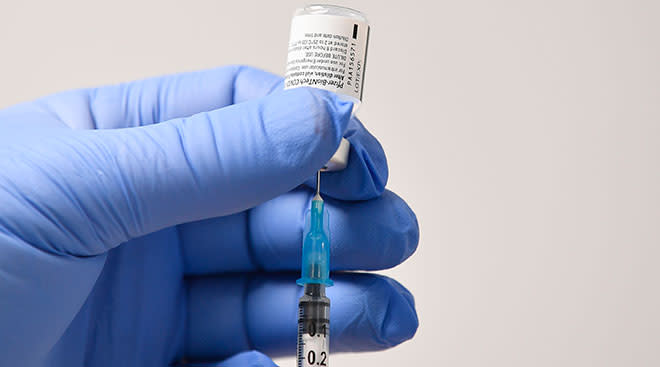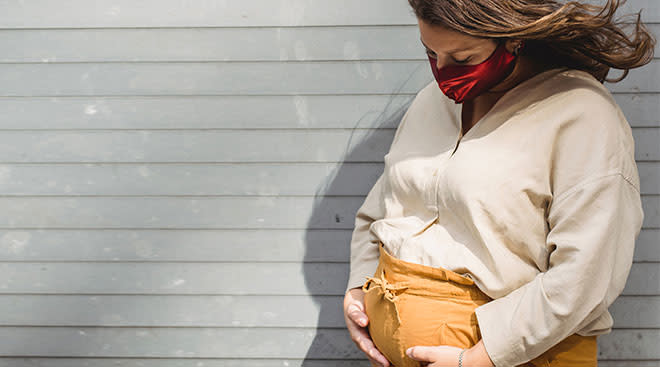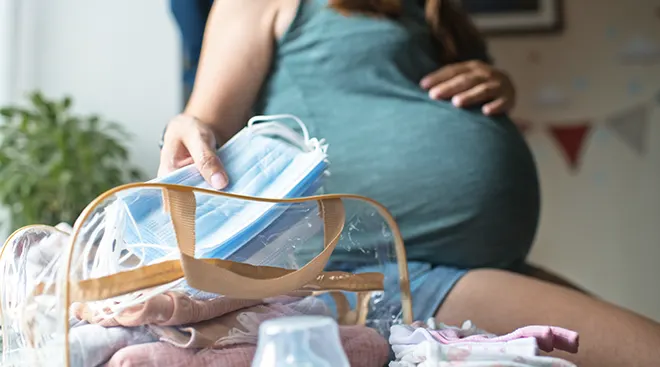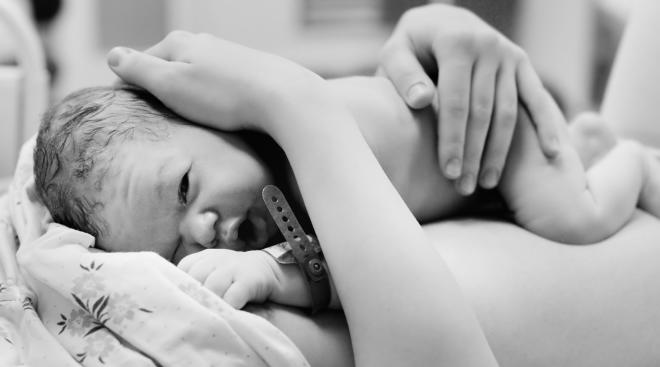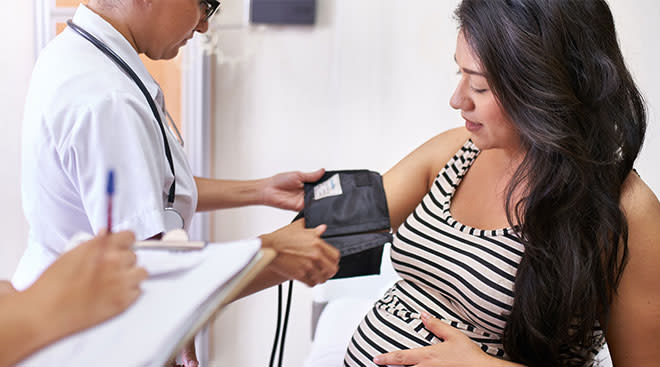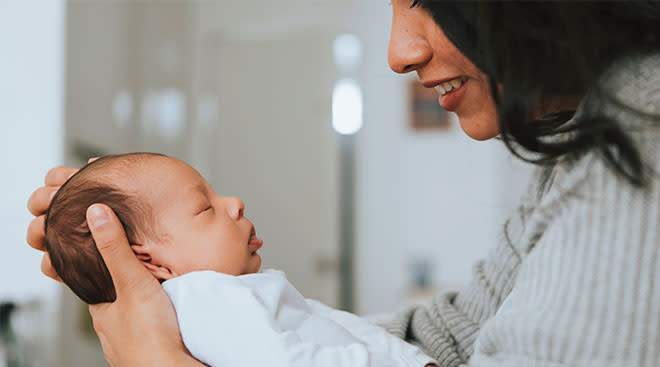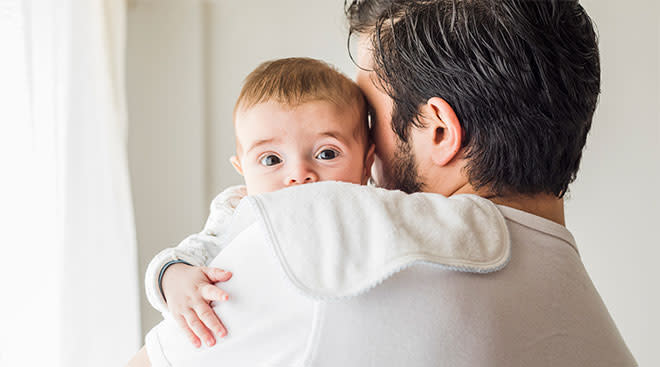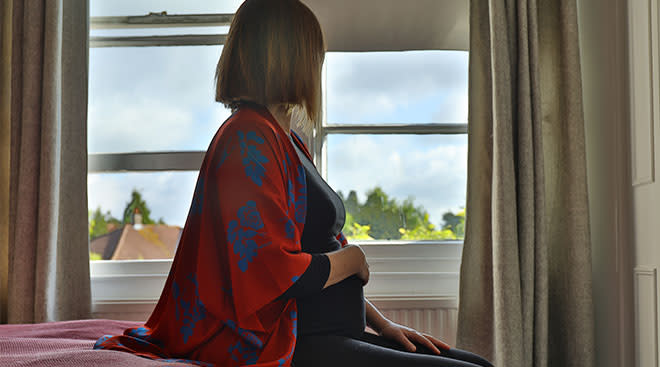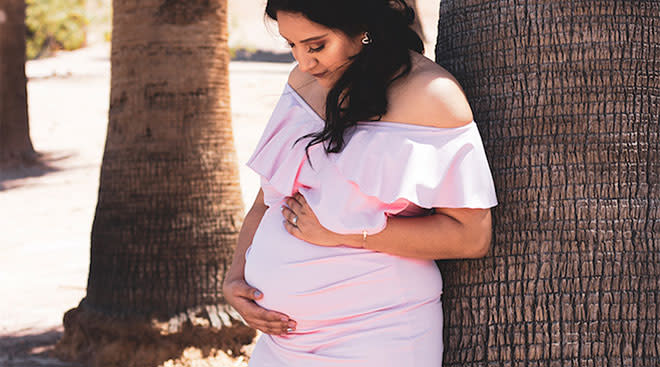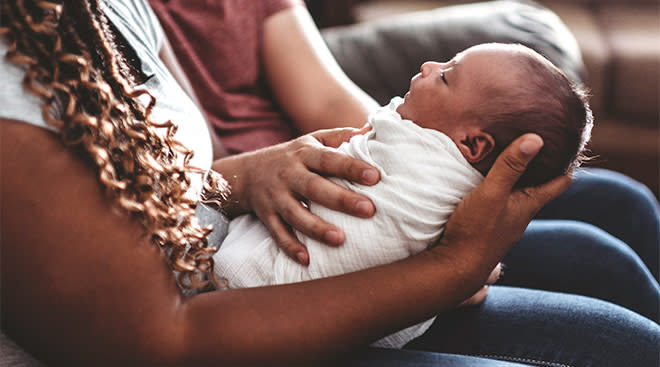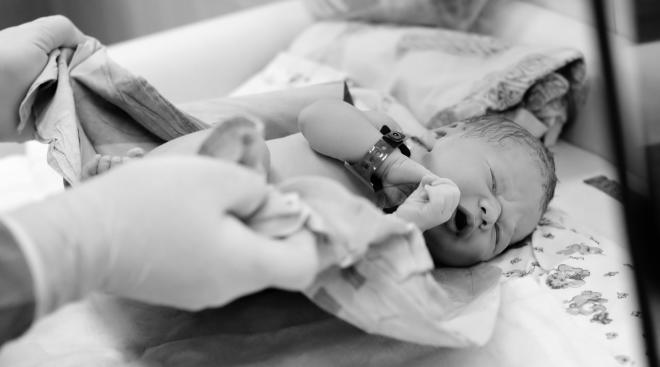COVID-19 May Damage Placenta in Pregnant Women, Study Suggests
Scientists across the globe are still trying to learn as much as they can about the novel coronavirus, COVID-19—including how it may impact pregnant women. While there still needs to be plenty of research done on the topic to discern the facts about the impact of the virus, a new study published last week suggests that the virus may affect placenta.
The study, which was published in the journal American Journal of Clinical Pathology, is the largest study to date to look at the health of placentas in pregnant women who test positive for COVID-19. However, keep in mind the study only looked at data from 16 pregnant women, so there is still more research needed.
According to pathological exams done directly after birth, the researchers found that there was evidence of injury to placentas and abnormal blood flow between the moms and their babies in utero. More specifically, the study found that the placentas had two common abnormalities. The first was insufficient blood flow from the mother to the fetus with abnormal blood vessels, referred to as maternal vascular malperfusion (MVM). The second was blood clots in the placenta, called intervillous thrombi.
The researchers believe their findings could point to a new COVID-19 related complication for pregnancy and better inform how pregnant women need to be clinically monitored during the pandemic. This increased monitoring could be in the form of non-stress tests, which look at how well the placenta is delivering oxygen or growth ultrasounds, which look at whether baby is growing at a healthy rate, co-author of the study Dr. Emily Miller, assistant professor of obstetrics and gynecology at Feinberg and a Northwestern Medicine obstetrician, stated in a news release.
“Most of these babies were delivered full-term after otherwise normal pregnancies, so you wouldn’t expect to find anything wrong with the placentas, but this virus appears to be inducing some injury in the placenta,” senior author Dr. Jeffrey Goldstein, assistant professor of pathology at Northwestern University Feinberg School of Medicine and a Northwestern Medicine pathologist, also stated. “It doesn’t appear to be inducing negative outcomes in live-born infants, based on our limited data, but it does validate the idea that women with COVID should be monitored more closely.”
Of the 16 women, 15 delivered their babies in the third trimester. One woman suffered a miscarriage in her second trimester. “That patient was asymptomatic, so we don’t know whether the virus caused the miscarriage or it was unrelated,” Goldstein said. "We are aware of four other cases of miscarriage with COVID. The other reported patients had symptoms and three of four had severe inflammation in the placenta.” However, he added he needed more information on the topic before he could draw any conclusions.
In fetal development, the placenta is the first organ to form and acts as the fetus’ lungs, gut, kidneys and liver. The placenta also takes oxygen and nutrients from the mom’s blood stream and filters out waste. “The placenta acts like a ventilator for the fetus, and if it gets damaged, there can be dire outcomes,” Miller explains. “In this very limited study, these findings provide some signs that the ventilator might not work as well for as long as we’d like it to if the mother tests positive for SARS-CoV2.”
The study explained that in normal cases of MVM, the mom’s blood pressure is higher than normal, and the condition is often seen in women who have preeclampsia or hypertension. However, from their data of 16 women, only one was found to have either preeclampsia or hypertension.
“There is an emerging consensus that there are problems with coagulation and blood vessel injury in COVID-19 patients,” Goldstein said. “Our findings support that there might be something clot-forming about coronavirus, and it’s happening in the placenta.”
Miller added, “Placentas get built with an enormous amount of redundancy. Even with only half of it working, babies are often completely fine. Still, while most babies will be fine, there’s a risk that some pregnancies could be compromised.”
Both agree that more research is needed to fully understand the effects of COVID-19 on pregnancy.
Please note: The Bump and the materials and information it contains are not intended to, and do not constitute, medical or other health advice or diagnosis and should not be used as such. You should always consult with a qualified physician or health professional about your specific circumstances.
Navigate forward to interact with the calendar and select a date. Press the question mark key to get the keyboard shortcuts for changing dates.

































